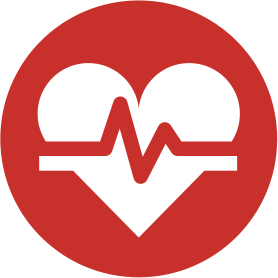That’s blood pressure, cholesterol, blood sugar and body mass index. If these are too high, you are more likely to have heart disease, stroke and other health problems. Getting your numbers checked regularly and knowing what they mean is a best first step toward better health. Plus, knowing your numbers can help you and your doctor make the best plan for reducing your chances of developing heart disease, diabetes and other major chronic illnesses.
Please talk to your doctor or make an appointment with our clinic staff and get your numbers – make this the beginning of your journey to a healthier you.

KNOW YOUR BLOOD PRESSURE
What is it?
The force of blood against the arteries when the heart beats (top number) and rests (bottom number).
What should your number be?
Less than 120/80
How we measure blood pressure.
Blood pressure measurements are taken using a stethoscope and a blood pressure cuff.

KNOW YOUR BLOOD CHOLESTEROL
What is it?
A waxy substance that is found in your blood and produced by the liver. Too much can make it harder for your blood to circulate.
What should your number be?
Total cholesterol score less than 200
How we measure cholesterol.
Cholesterol levels are measured using a simple blood test called a lipid profile.

KNOW YOUR BLOOD SUGAR
What is it?
The amount of sugar in your blood.
What should your number be?
Before eating (fasting blood sugar): Less than 100 mg/dL
Two hours after eating: Less than 140 mg/dL
How we measure blood sugar.
We’ll collect a small sample of blood either through a finger prick or a draw from your vein to screen for Type 2 Diabetes. Or, we’ll perform an A1C test that measures your average blood sugar levels over the past three months. This is a commonly used test to diagnose pre-Diabetes and Diabetes.

KNOW YOUR BMI
What is it?
Your ideal body weight depends on your gender, age, height and frame. BMI provides a good guideline.
What should your number be?
A healthy body mass index (BMI) is ideally between 18.6 – 24.9 and waistlines smaller than 35 inches for women and 40 inches for men
How we measure BMI.
Your body mass index is your weight in pounds divided by your height in inches. Calculate your BMI (button)
HOURS
Mon 9am-5pm
Tue 9am-8pm
Wed 9am-5pm
Thu 9am-5pm
Fri-Sun CLOSED